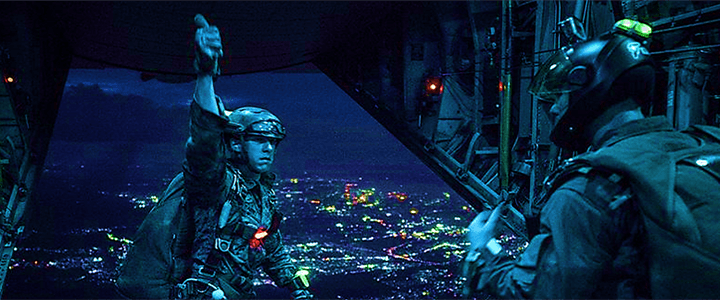FROM THE DESK OF CLEARANCEJOBS.COM
Vacation! “With the temperature starting to rise and the kids about to leave school for summer break, there’s probably one thing going through your mind – vacation. Whether it’s a long weekend or two weeks of bliss, it’s time to leave the crowded streets of Washington D.C. and hit the open road. Here are a few of our favorite getaways, all within driving distance and all packed to the brim with the potential for good eats and fond memories.”
Polygraph prep. “Polygraph examinations, while controversial, are effective, and for one key reason. They’re a great way to get unsuitable candidates to crack under pressure – and reveal information they didn’t disclose up front. If you’re honest from the beginning, you’ll find your security clearance polygraph is just a stressful step on your way to your dream job.”
THE FORCE AND THE FIGHT
Arming Libya. “The United States, the other permanent members of the U.N. Security Council, and more than 15 other countries issued a communique stating their intention to arm the U.N.-backed Libyan Government of National Accord to defend against a rival government and begin to roll back the Islamic State’s territory in the country. The arrangement discussed in Vienna on Monday would involve waiving an arms embargo imposed in 2011 to allow supplying the government with weapons.” (Foreign Policy)
The siege of Daraya unfolding. “Rebel fighters and officials in a besieged Syrian town on the outskirts of Damascus believe government forces are preparing an assault after they turned back an aid convoy last week. Daraya, situated close to a large air base and just a few kilometers (miles) from President Bashar al-Assad’s palace, had seen little violence since a broader cessation of hostilities agreement came into effect at the end of February. But, with the truce rapidly unraveling across Syria, government forces began shelling the town on Thursday after refusing entry to the first aid convoy it would have ever received.” (Reuters)
Understanding Sykes-Picot. “The Middle East today is undergoing its greatest political and social upheaval since the agreement negotiated by Sykes and the French statesman Francois George Picot was signed 100 years ago this week. The conflicts roiling the region, particularly those in Syria and Iraq, have thrown into question whether the post-World War I nation-states can survive or whether new entities will emerge from the turmoil in the years ahead.” (The Christian Science Monitor)




